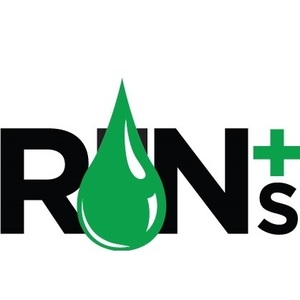EPA: 1.75 billion RINs generated under RFS in January

February 20, 2023
BY Erin Krueger
The U.S. EPA has released data showing more than 1.75 billion renewable identification number (RINs) were generated under the Renewable Fuel Standard in January, up from 1.59 billion that were generated during the same month of 2022.
More than 1.48 million D3 cellulosic biofuel RINs were generated in January, including 877,915 generated for compressed renewable natural gas (RNG) by domestic producers and 604,446 generated for liquefied RNG by domestic producers.
Approximately 522.37 million D4 biomass-based diesel RINs were generated in January. That volume includes nearly 242.91 million generated for nonester renewable diesel by domestic producers, 179.04 million generated for biodiesel by domestic producers, 63.99 million generated for nonester renewable diesel by foreign entities, 36.27 million generated for biodiesel by importers, and 161,499 generated for renewable jet fuel by domestic producers.
Advertisement
More than 15.78 million D5 advanced biofuel RINs were generated in January, including 7.46 million generated for naphtha by domestic producers, 5.7 million generated for nonester renewable diesel by domestic producers, 2.4 million generated for ethanol by domestic producers, and 228,976 generated for renewable heating oil by domestic producers.
In addition, nearly 1.22 billion D6 renewable fuel RINs were generated in January. That volume includes 1.2 billion generated for ethanol by domestic producers, 14.65 million generated for nonester renewable diesel by foreign entities, and 93,242 generated for ethanol by importers.
Advertisement
No D7 cellulosic diesel RINs were generated in January.
Additional data is available on the EPA website.
Related Stories
U.S. fuel ethanol capacity fell slightly in April, while biodiesel and renewable diesel capacity held steady, according to data released by the U.S. EIA on June 30. Feedstock consumption was down when compared to the previous month.
XCF Global Inc. on July 8 provided a production update on its flagship New Rise Reno facility, underscoring that the plant has successfully produced SAF, renewable diesel, and renewable naphtha during its initial ramp-up.
The U.S. EPA on July 8 hosted virtual public hearing to gather input on the agency’s recently released proposed rule to set 2026 and 2027 RFS RVOs. Members of the biofuel industry were among those to offer testimony during the event.
The USDA’s Risk Management Agency is implementing multiple changes to the Camelina pilot insurance program for the 2026 and succeeding crop years. The changes will expand coverage options and provide greater flexibility for producers.
EcoCeres Inc. has signed a multi-year agreement to supply British Airways with sustainable aviation fuel (SAF). The fuel will be produced from 100% waste-based biomass feedstock, such as used cooking oil (UCO).
Upcoming Events










